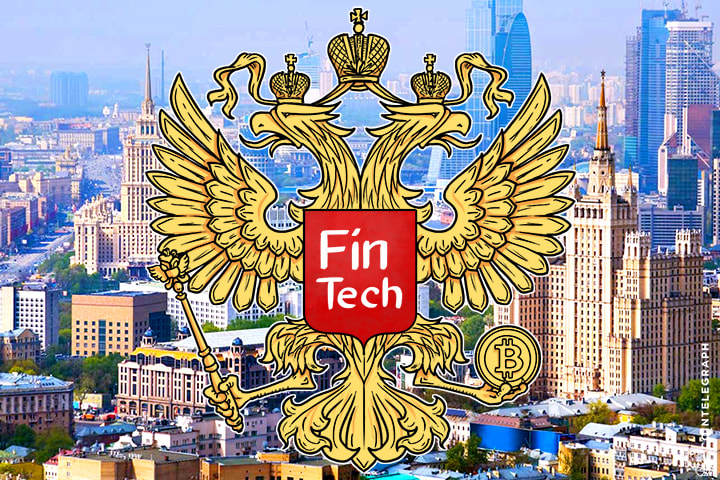Putin’s business ombudsman says Russia must become the world’s blockchain leader, as he’s certain the country has the necessary resources.
There are currently around 500 000 of Blockchain users in Russia, and the number is growing. Following the UK’s decision to leave the EU the race is now on to replace London as the global fintech capital, and Moscow may join the race.
Focus on Blockchain
The Party of Growth led by Boris Titov has developed a program which will be presented in the parliament elections this September. Researching and testing Blockchain applications are one of the main priorities for the development of information and financial technology in the country, and are thought to be able to help Russia depart from their dependency on oil and gas.
Titov says:
“It is of no less significance than the creation of the Internet. If today we attract all the main technologies and investors in the sphere of the Blockchain and cryptocurrencies, having all the resources, both geographic and human, we would advance to take our place among the leading countries of the world , not only in this sphere, but in general.”
The econmy’s main focus should swing towards development of the ‘economy of the future,’ which includes information and digital technologies, advanced engineering services, genetics and biotechnologies. The party stands for the ‘new industrialization’ driving the inflow of high-tech investments to the real economy.
Opposition to Central Bank’s policy
Titov is among a few state authorities who openly express their enthusiasm about technology. However, such open-mindedness is not necessarily shared by the majority of his colleagues.
Titov says:
“We are in opposition to the current economic policy adopted by the government and the Central Bank. Unfortunately, so far the President backs them, but we hope it will change soon.”
Interestingly, the Duma (the Russian parliament) clearly distinguishes Blockchain and cryptocurrency designed on the basis of this technology. While giving some space for playing around with the former, there have been several attempts to ban the latter.
In December 2015 the Code of Administrative Offences was updated and included a new chapter introducing an administrative responsibility for operations with pseudo money, implying, in this case digital, currencies. Even though the government was recommended to exclude the chapter from the code, it was decided that the draft of the Code would be revised and maybe even passed by the next calling of the Duma.
The Ministry of Finance, with the support of Duma, has been sketching tight regulations since 2014. Suggestions by the Ministry included delegation of additional functions to the Central Bank of Russia for combating even the promotion of use of Bitcoins as a means of payment, and imposition of legal responsibility for the operations with Bitcoin.
Rise of fintech at Brexit’s expense
Following the UK’s decision to leave the EU the race is now on to replace London as the global fintech capital. What are the chances Russia might take on this role?
In April 2016 at the Blockchain and Bitcoin conference which took place in Moscow, representatives of foreign Blockchain companies shared their enthusiasm to contribute to the development of technology in the country.
Paul Szurek, Head of Strategy&Partnerships at Blockchain said:
“Our mission is to reinvent finances, make them adequate to the era of the financial technology revolution and provide people with better access to financial services”.
He believes that transparent financial technologies will allow fast, secure and confidential transactions, and it is especially important for countries with a low level of trust towards financial institutions, with Russia being one of these countries.
According to Szurek, Russia has a strong potential for the development of innovative payments solutions on the basis of Blockchain. There are currently around 500 000 Blockchain users, and the number is growing.
With state support through attractive tax policies, the introduction of slightly more friendly regulations, or even the creation of a single platform for the research and testing of Blockchain in the manner of R3, might increase Russia’s chances in becoming one of the world’s Blockchain leaders.
Changing the tone in Blockchain discussions
In September 2016 the State Duma will be re-elected. If the Party of Growth gets into the Russian parliament, it could bring fresh perspective to the debates over the development and application of Blockchain.
Titov thinks that the internet in Russia is overly controlled with the state authorities imposing too tight regulations. Russia’s internet ombudsman Dmitri Marinichev agrees with his colleague. Earlier this year he said that the Party of Growth will also be working on the draft law defining the cyber space in the country. In his opinion, it is important to develop the infrastructure, attract brilliant, talented and active developers who would be eager to come to Russia to work on their projects. Marinichev strongly criticized laws regulating the internet which are being discussed in the Duma.
Lately Blockchain technology has been under scrutiny by businesses and state institutions.
Andrey Lugovoy, Deputy at the Commission for Security and anti-corruption said:
“Distributed ledger technology drives the progress. As soon as possible Russian businesses should find ways to make it useful for business processes to ensure they keep up with the global financial technology revolution. Blockchain technology is proof that sanctions imposed on Russia facilitate the progress inside the country.”


